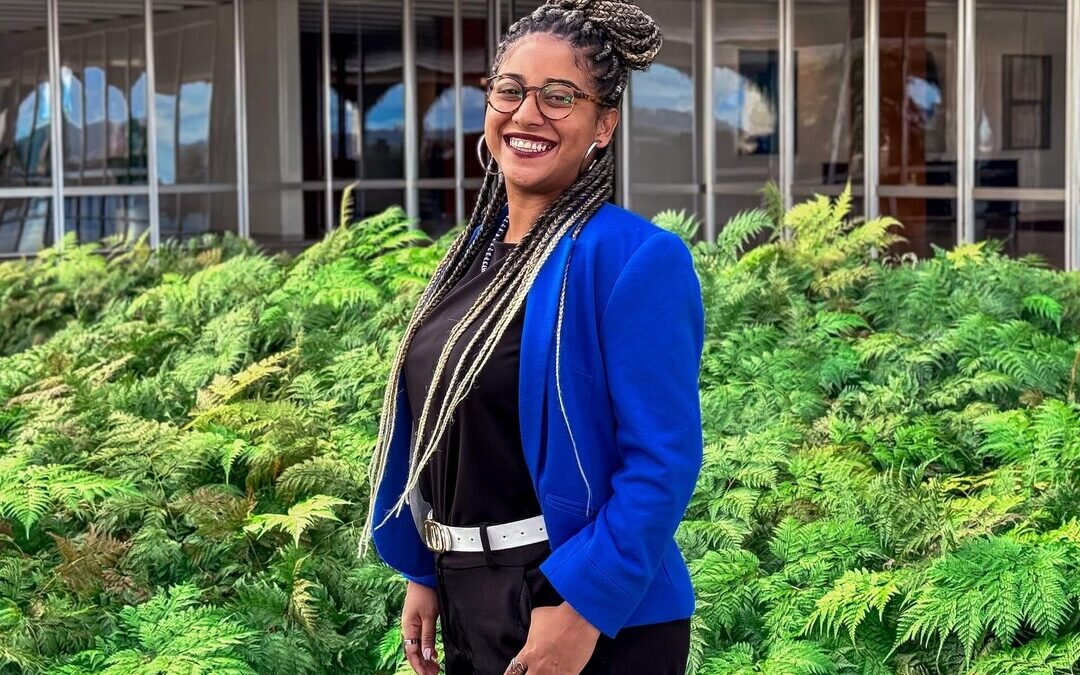DAY 3: Empowering People to Drive Climate Progress at COP30
COP30 spotlights jobs, culture and information integrity as nations push people-centered strategies to accelerate climate progress.
COP30 delegates advanced a people-first climate agenda on Wednesday as governments, investors and civil society launched plans to expand skills, protect information integrity and elevate Indigenous leadership.
The mood stayed upbeat, and countries emphasized cooperation and human capacity as core elements of a low-carbon transition.
The Global Initiative on Jobs & Skills for the New Economy set the tone. It aims to integrate labor and training strategies into climate policy. Its flagship report says the transition could create 375 million jobs in the next decade, while adaptation efforts could add 280 million more.
Eight countries have joined the action plan: Brazil, Cambodia, Indonesia, Kenya, Pakistan, the Philippines, South Africa and Egypt. Organizers expect more than 20 countries and over 40 institutions to participate by 2028.
Indigenous Leadership Guides Adaptation
Indigenous leaders stressed that ancestral knowledge strengthens adaptation strategies. Delegates shared methods that shape national policy. The Indigenous Council of Roraima presented five adaptation plans that now support local governance in northern Brazil.
Speakers urged governments to embed Indigenous knowledge in the Global Goal on Adaptation. The roundtable also highlighted direct financing for Indigenous-led projects.
Information Integrity Enters COP Agenda
Information integrity appeared on the COP agenda for the first time. Organizers called it a turning point. Six new member states joined the Global Initiative for Information Integrity: Belgium, Canada, Finland, Germany, Spain and the Netherlands. The initiative also announced its first ten funded projects.
Its 2028 plan aims to support legal reforms in more than ten countries, raise $10 million through UNESCO’s global fund and create a Charter of Principles for Accountable Climate Advertising. Organizers hope that at least 15 publishers, platforms and AI firms adopt it.
Public Procurement and Finance Push Transition
Industry and finance leaders worked to align trillions in public spending with climate goals. UNIDO and the Industrial Deep Decarbonisation Initiative launched a plan to expand sustainable procurement in high-impact sectors such as cement, concrete and steel.
Brazil, Mexico, Norway and the Netherlands confirmed participation, and more countries are in talks.
Asset owners met separately and agreed on recommendations for Finance Day. Their meeting focused on unlocking capital in emerging markets and strengthening the case for transition finance.
Culture and Storytelling Build Momentum
Artists, ministers, activists and Indigenous leaders explored how culture shapes climate action. A new plan to integrate cultural heritage into national adaptation plans aims to help more countries include culture in long-term resilience strategies.
During the storytelling session, Brazilian Culture Minister Margareth Menezes said, “Art and culture are powerful bridges — they connect hearts, awaken awareness and move people to action. Through art, we can transform emotion into strength and imagination into change. That is why culture must be at the center of the fight for our planet.”
She added, “We will need everyone. This is the great collective movement of humanity — a union of art, science and spirit to save our planet and our own lives. Because the Earth does not belong to us; it belongs to every generation that came before and every life that is yet to come.”
Youth Push for Intergenerational Leadership
Youth Climate Champions hosted a high-level dialogue focused on shared leadership across generations. “Beyond environmental racism, beyond injustice, we continue fighting — and we need young people in this fight,” said Marcele Oliveira, Youth Climate Champion of the COP30 Presidency.
Maloca sessions continued in the Green Zone with discussions on racial justice, traditional knowledge and community-led action. Indigenous Peoples Minister Sonia Guajajara led the opening ritual of the Indigenous COP and reaffirmed Indigenous leadership in Brazil’s climate targets.
Negotiators Signal Strong Cooperation
Talks advanced smoothly, according to COP30 President Ambassador André Corrêa do Lago. “We’re seeing a very good mood among the parties; we’ve also had very good interactions with the observers and interesting discussions. I think there is a strong indication that everybody who is here wants to show the world that multilateralism works and that we’re all together to prove that,” he said.
As day three closed, delegates converged on one message: empowering people with skills, trust and cultural identity will determine the pace and success of global climate action.
Also Read:
DAY 2: Cities, Water and Local Leaders Drive Momentum on COP30
Nirmal Menon
Related posts

Subscribe
Error: Contact form not found.


